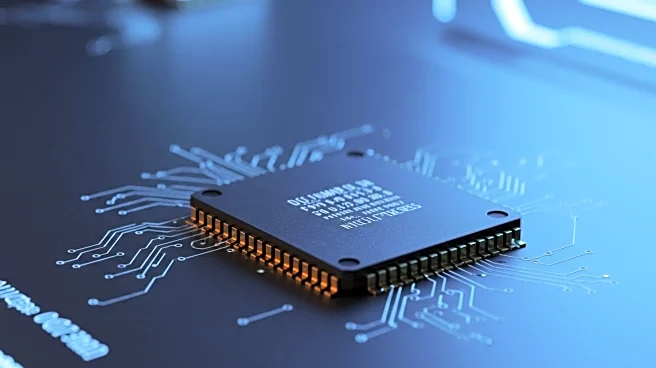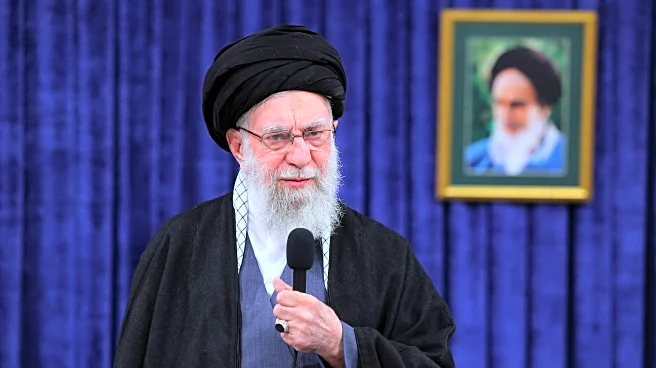What's Happening?
President Trump has announced a significant deal involving the U.S. government acquiring a 10% stake in Intel, a major player in the semiconductor industry. This move is part of a broader strategy to bolster the U.S. semiconductor sector, which has been struggling to keep pace with global competitors. The deal involves the disbursement of nearly $9 billion to Intel, which has faced challenges in maintaining its market position. This initiative follows the Chips Act, aimed at revitalizing the U.S. semiconductor industry, which was enacted during President Joe Biden's administration. Despite these efforts, Intel's stock has seen a decline, raising questions about the effectiveness of such government interventions.
Why It's Important?
The acquisition of a stake in Intel by the U.S. government highlights a shift towards industrial policy in strategically vital sectors like semiconductors. This move is seen as a response to the growing competition from countries like China, which have heavily invested in their semiconductor industries. The deal raises concerns about the potential distortion of free-market principles and the risk of government intervention leading to inefficiencies. While the intention is to secure critical supply chains and enhance national security, there is skepticism about whether such strategies will lead to sustainable improvements in the U.S. semiconductor industry. The outcome of this deal could have significant implications for U.S. economic policy and its approach to global competition.
What's Next?
The future of this initiative will depend on Intel's ability to leverage the financial support to regain its competitive edge. The U.S. government may need to consider additional measures to ensure the effectiveness of its industrial policy, such as collaborating with international allies to secure supply chains. The success of this strategy will likely influence future government interventions in other critical industries. Stakeholders, including policymakers and industry leaders, will be closely monitoring the impact of this deal on the U.S. semiconductor sector and its global standing.
Beyond the Headlines
This development raises broader questions about the role of government in shaping economic outcomes and the balance between market forces and state intervention. The deal could set a precedent for future government investments in private companies, potentially leading to debates over the appropriate level of government involvement in the economy. Additionally, the focus on semiconductors underscores the strategic importance of technology in national security and economic competitiveness.










